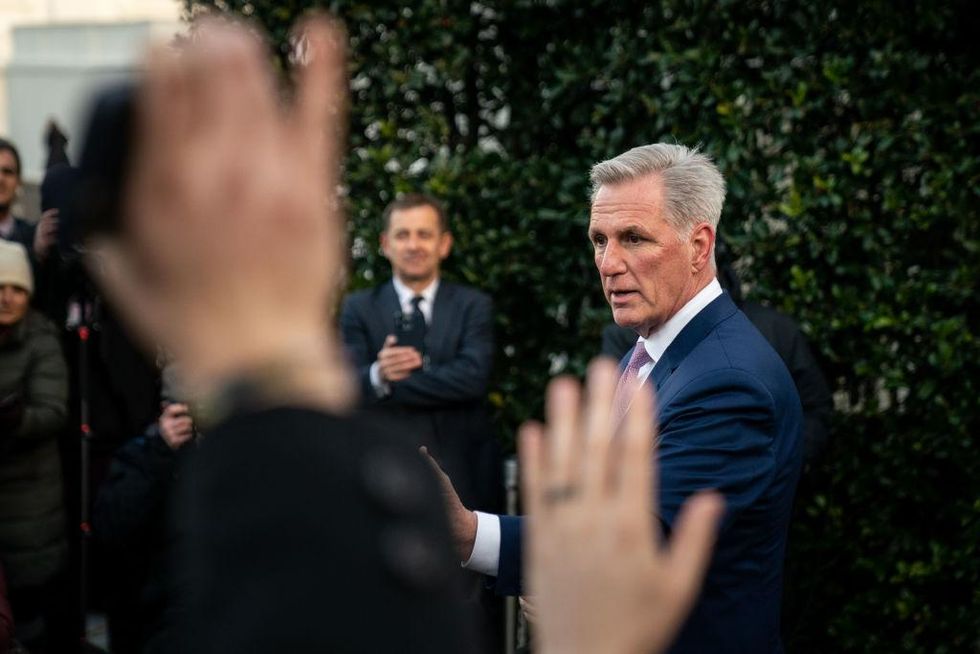
On Wednesday afternoon, President Joe Biden met with House Speaker Kevin McCarthy on the debt ceiling.
Unfortunately, the meeting reinforced McCarthy’s and the Republicans’ message that raising the debt ceiling is a negotiable issue that should be dealt with by reducing spending.
TheWashington Post described the meeting as the “kick off [to] talks aimed at averting a potentially catastrophic default on the national debt” and “the earliest stage of a messy political back-and-forth between the White House and Republicans over the federal debt ceiling.”
Sure sounds like the start of negotiations.
Politico reported that “Biden officials in the run-up to the meeting privately discussed the potential for a compromise that heads off a debt ceiling crisis while separately granting McCarthy small concessions that would allow him to save face with his party.”
Compromise? Concessions? We’re already at the negotiating table, folks.
I’ve been through several debt-ceiling crises. How they’re framed determines how the public understands what’s at stake. This framing puts the onus on Biden and the White House to negotiate.
Compromise? Concessions? We’re already at the negotiating table, folks.
Worse yet, the media isn’t providing context. TheWashington Post reports that McCarthy “views the growing federal debt as the ‘greatest threat to America,’” and Republicans “are determined to use talks around raising the borrowing cap to rein in the federal debt.” But where’s the reporting of the enormous $7.8 trillion debt racked up by Trump and his Republican Congress? Or the willingness of Republicans to raise the debt ceiling three times under Trump? Or the fact that Republican-sponsored tax cuts on big corporations and the rich substantially worsened the debt?
The White House and the Democrats must do a better job framing the debt-ceiling issue. The media must do a better job reporting on it.




